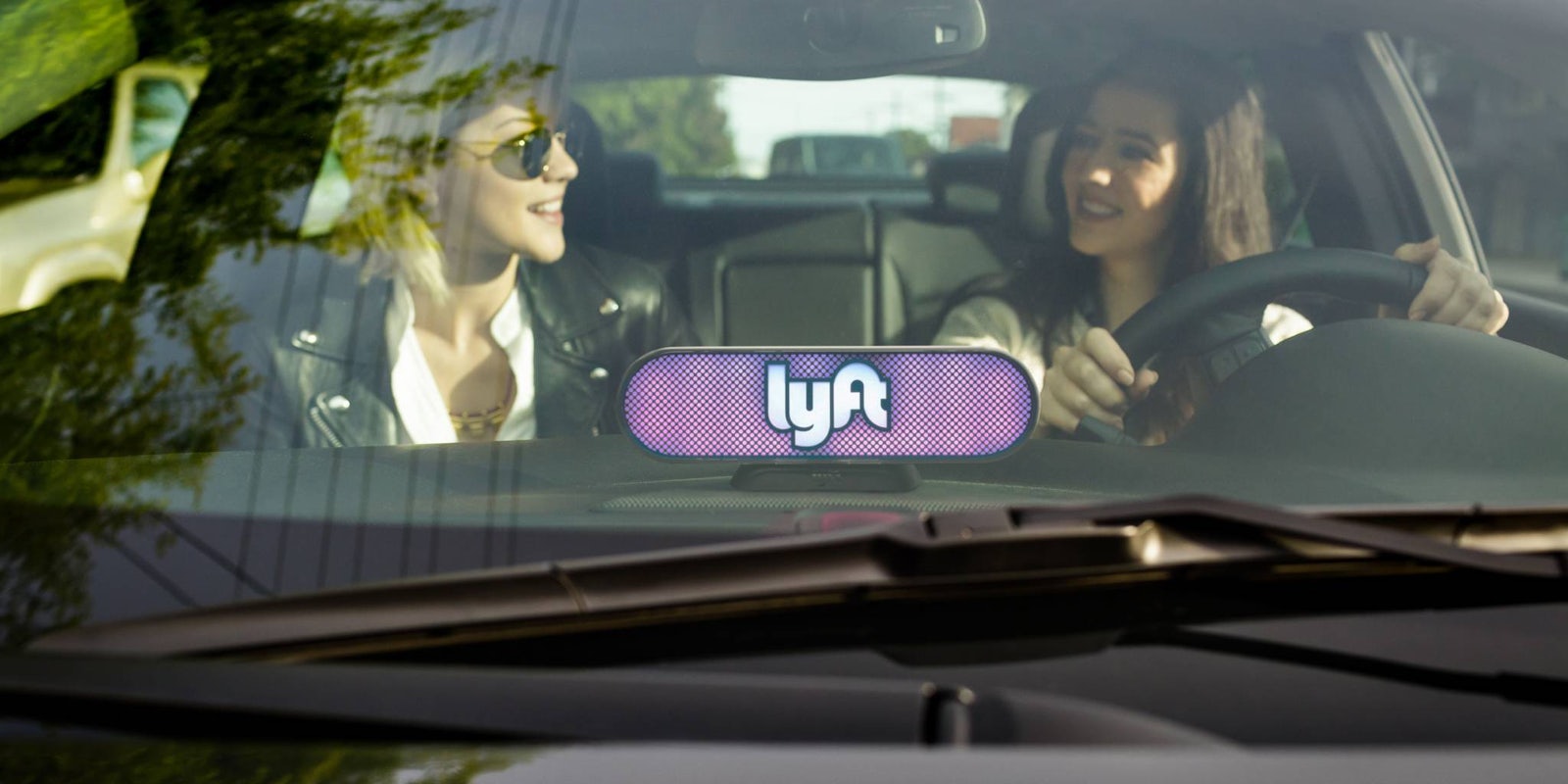The public has spoken, and it is not happy with Uber. This weekend, the ride share company prompted widespread outcry after breaking a strike at JFK airport protesting the president’s executive order barring Muslims from Syria, Iran, and five other nations from entering the country. At a time when taxis were boycotting the airport in solidarity against the executive order, Uber announced it had dropped surge pricing for the hour. The resulting #DeleteUber campaign didn’t just gain social media attention—it has given Lyft a huge surge in app downloads.
At the time of writing, App Annie lists Lyft as No. 7 in the App Store, just behind Snapchat and Facebook Messenger, while Uber has dropped to the No. 15 spot. Saturday morning, Lyft started out at the No. 39 position. Since then, according to TechCrunch, Lyft climbed as high as the No. 4 spot, and saw 78 percent week-over-week growth on iOS. This is the first time that Lyft has surged ahead of Uber in App Store rankings.
On Android, however, the effect isn’t so pronounced quite yet: Uber is the #22 most downloaded app on the Google Play Store as of Jan. 29th, while Lyft doesn’t crack the top 50. (Numbers may change as stats get updated.)
While some Uber users were angered by the company’s decision to remove surge pricing during the JFK airport protests, many were also incensed that Uber CEO Travis Kalanick is acting as a business advisor to the Trump regime. Lyft, which has billed itself as the anti-Uber, has capitalized on this with moves such as by pledging to donate $1 million to the ACLU over the next four years.
However, as MSNC notes, Lyft’s business is far from Trump-free. Carl Icahn, who invested $100 million into the company and sits on its board of directors, was a vocal supporter of Trump, who made him an advisor on regulation last month. Peter Theil, whose Founders Fund has invested in the company on several occassions, is also an advisor to the president.
H/T TechCrunch


